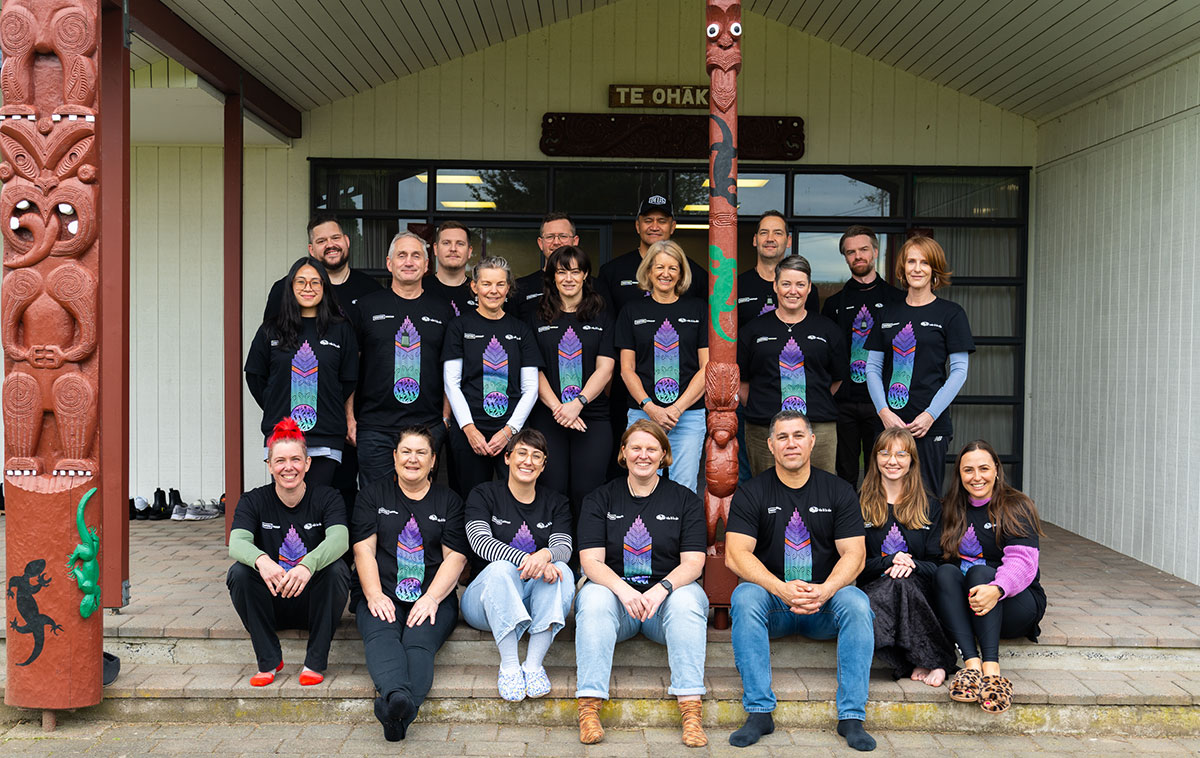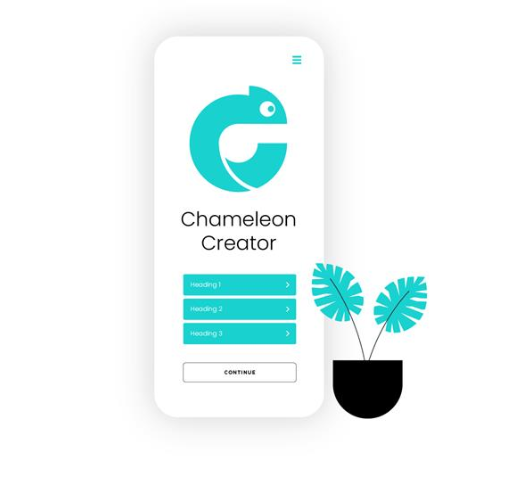Building your team culture online
In this episode Nat Gunn from Epic Learning chats to Dan Tohill. She provides practical tips on building your team culture online and shares her vision for the future of learning in virtual and augmented reality.
Listen to the interview here:
Or read the interview summary here:
How has 2020 been different for you and your company?
Epic is a remote company by design. So we kind of boast that we've actually never had our team in the same location. In terms of working from home, flexible hours, that sort of thing has been part and parcel for us anyway. I think the real challenge that 2020 has brought us is the uncertainty. A lot of work stopped over the lockdown period, and we didn't really know what was going to come back. And we didn't know what the world was going to look like. W e probably still don't, so I think that uncertainty has bred a bit of anxiety.
I know one thing for certain is that we've had a real focus on looking after our well-being a lot more this year. But also looking out for our clients as well. So you're seeing a lot of extra stress. We're seeing a real need for people to get something completed. To get something finished and achieving something. There's been a lot of potentially undue stress that we're putting on ourselves, and so we're trying to work through that. The other challenge that we had this year that we don't normally have is, even though we're used to working from home, we're not used to working from home with partners and kids.
It really changes the dynamic and so making sure we can accommodate for that is important.
What have you either done internally, or with your clients to try to foster the sort of culture you want, given that things have been a little bit tougher?
We've got a really good infrastructure set up for checking in on people for making sure that we are connecting in different ways. The team like to get together for a bit of fun time. So it might be playing an online game together or just having a few beers over Zoom on an afternoon. So just doing that. But I think the really important thing is checking in and showing a bit of vulnerability yourself. So I'm pretty open and honest with myself, about my own struggles and how I maintain my own mental health. I think that that creates a dialogue with the team, so they're not afraid to say when they're struggling aswell.
In terms of clients and working with different companies, what's really helped with tapping into the culture is to start with helping them iron out a few things. So just building some basics around capability, around running a meeting online, looking after people online, creating a team environment, and helping people find their way a little bit. There are a lot of organisations out there that were really forced online very quickly. And I think now they're starting to realise that it's not so simple.
You can't just pick up your business and put it on Zoom. So helping people get their heads around what it actually looks like to be remote, and helping leaders in particular really understand what changes need to be made when you're leading a virtual team, as opposed to a team that you're in front of every day. Helping people understand that you need a bit of patience, and that it's not all going to work on the first day, and that your technology is going to break down every now and then. There are going to be meetings where it takes 15 minutes to get everybody online and off mute. They do become frustrating, but it is part and parcel of what we're doing.
Are you able to share a couple of changes that leaders need to make to effectively lead their teams in a virtual environment?
There's a lot of fear around going online. My personal view is that a lot of it comes from an inherent lack of trust. I've seen organisations really go down the wrong path, in terms of tracking devices on computers to make sure keyboards are being typed on. Or trying to catch someone out by ringing them at random times. I often say anybody can move a mouse. But we actually want productivity, we don't need to manage people by the clock. One of the big changes is getting people to think in that space of output. It's a real paradigm shift.
As a leader, we can sometimes get caught up in that, because the productivity of the team is our responsibility so we perpetuate it. It's important to step back and think about, "What are we achieving, rather than who's online?" The other thing that I think is really important is, in an online team like mine, strength-based leadership is really important. You can't just leave people to flounder. So we do a lot of work on giving the right person, the right job, at the right time.
Do you have any advice around digital eco-systems?
People are moving online so fast, they're kind of just going to Zoom, or they're using Teams, and nothing else has changed. And so there's still an email- heavy culture. Basically, all that's happened is that the meetings have just gone online. And there's been nothing that's really been done around supporting that shift. So we talk a lot about choosing the right mode for the right message.
Think about all of those different channels. We've got email, we've got the telephone, we've got our Slack channels, we've got our project boards, and each one of those serves a different purpose for the type of communication. So when we onboard a new person into our team, a lot of it is about teaching them to communicate using the right tool at the right time. We've got a Teams channel that's open all the time, that can just be that quick question of, hey, I need a bit of help here. There's always someone online, there's always someone around in our team.
What are some of the advantages of virtual working?
There are some huge advantages. From a personal perspective, the advantage of no commute is hug; I think we underestimate it. But the fact that I've worked in jobs in the past, where the commutes have been an hour each way or more, and that is two hours of my day. No commute leads into things like having bit more time for exercise, having a bit more time for family and so on and so on. From a business perspective, we're not paying for bricks and mortar, for people to come to an office. But also it's the flexibility, because we're spread across New Zealand, and we've got some people working from Melbourne with us at the moment.
We can go to a client wherever the client is, so it changes the paradigm again. So instead of, we're located here, we're actually located wherever we need to be, and that's a real competitive advantage for a lot of clients. I think it makes you hire and attract the right kind of good people, because you're offering that flexibility. I know a couple of my team wouldn't have the opportunity to work in a design company without having to move out of a rural town. So we attract talent from anywhere, and we don't need to have them in Auckland or in Wellington, and that's a huge advantage for both me as a business owner, but also for these people living out in the most beautiful parts of our country.
And what, in terms of other advantages, in particular shifting some of that learning online and more virtual learning, have you seen have been some benefits for some of your clients?
When we come to virtual learning, there are so many benefits, so I want to tell you a little story.
"Last year a client had a major re-engineering sort of transformation. They were changing their entire system. And we're talking hundreds of staff spread all around New Zealand and different business functions. The first thing they said when we went in there was, we've only ever done face-to-face training. It's the only thing our people like, and we don't know how we're going to get this rollout done, because it's going to cost way too much. The first thing we did is said "okay, let's ask them".
So we got together a survey, and we asked them questions about how they would prefer to learn etc. So, not what training do you want but how do you prefer to learn? How do you prefer to communicate. And something like 78% of people said that they preferred video learning over face-to-face classroom learning. And the reason they gave is because they can rewind a video and they can do it in their own time. If they are learning it real fast, then they can press fast forward. Or if they need to do it twice, they can do it twice.
When you're in a classroom, you're only as good as your slowest person, so the individuality of learning, I think, is really under-appreciated. When it comes to online learning that ability to be able to adapt what you need is easy. We often say, just enough, just in time, and just for me. Online learning can do that, and can cater for specific learning styles far more efficiently than a person in a classroom and in the classroom environment.
And another thing I think is a real advantage, is that your learning becomes an asset. So you can run a workshop (don't get me wrong, they can be awesome), but you don't create anything lasting from that, it's a moment in time. But when you're building online learning, you're creating assets. I'm a big fan of getting the learner to generate content, for example, you're recording sessions, and then leave them for the next group of learners. That's where the real magic happens. Getting your learners involved in creating content for the next people that are going to come along can be really helpful, it's an awesome way to learn. It's the asset building.
Where do people go wrong with online learning?
I think where people go wrong is they look at a facilitated session in a classroom, and they try to replicate the facilitated session online. But what they should be doing is trying to replicate the outcomes of that facilitated session. So you're actually thinking about, what am I trying to achieve here? And then use the digital tools to create a different experience, but with the same outcomes. And you can do that, it doesn't have to be hard.
You mentioned Zoom, but what are some of the other platforms that folks are using?
We're seeing a lot of Microsoft Teams suite coming through. One thing I would say is that the majority of businesses that I'm seeing are really under-utilising the online collaboration tools. I don't think as a workforce, we've shifted our capability quite as quickly as we potentially could have. I think there's a lot of opportunity there for leaders to create capability around online collaboration, even things as simple as document version control, and people potentially not quite understanding Cloud computing and what that brings, and some really basic digital acumen. Sometimes we've missed that basic stuff around good communication. There's a whole lot of things that we can do to encourage better behaviours online.
What are the sort of ancillary tools you have seen out there?
We are big Slack fans. So we've got a Slack set-up; we've got a channel for everything. We do spend a lot of time in Slack. And that would be our primary communication method, day to day. We're also really big on the Google suite of products. We use a lot of those sort of collaboration tools. What else have we been using lately? Even just something as simple as the whiteboard function on any kind of online platform, where we can be writing on it at the same time.
We're also trying to use our mobile phones a bit more. So instead of having this Zoom meeting, where we're sitting, face to face, and sitting in our chairs, actually getting up putting the headphones on and going for a walk and having a meeting like that. Another advantage of working from home is that if I know if I'm having a discussion that just needs audio, I can go out and just potter around in the garden while I'm hanging the washing out or whatever. Having that having that ability to get away from the desk is really important.
Is there anything that you see in the future that you can see either percolating from some of the research that you're doing or something that you desire?
I'm really excited about the VR (Virtual Reality) space. So I'm really excited about when our team will be going to meetings in a virtual space. I'm really excited about having online lecture halls, but in a VR space. And you can also decide what colour skin you want today, and are we sitting in an office? Or are we sitting on a cloud? We've been using VR research and development as an opportunity to play lots of games. We made our first VR prototypes probably three or four years ago, but it was still a bit clunky. Now head sets have got a lot cheaper, and hardware has got a lot better. The authoring tools are a lot more accessible. So I think we'll see a lot more VR in learning and development. It's going to become a must have in your training suite. And augmented reality to an extent as well.
What's your key take out from 2020? What would be the key insight, either personally or from a business owner or work you're doing with clients?
Here's a quote and I'm gonna hash it and not remember what it was and store it on Facebook or something. But it was something along the lines of,
"I thought 2020 was going to be the year where I got everything I wanted. But it was actually the year where I realised I had everything I needed."
And you know, we're still here, and we're still thriving, and it's very different to what we thought it would be. But like you said earlier, it's the people that you love. It's the things that you love. It's the freedom to go outside into our beautiful country and get some fresh air; being grateful for those things has been my biggest takeout.
A bit about Nat Gunn:
Nat, co-owner of Epic Learning, is a learning and development specialist with a lot of experience both working and learning online. She leads a remote team, spread across Australasia. Epic has carved a great company culture online, continues to grow and develop their people and gets a chance to have some fun, even if they have never all physically been in the same location together at once. Nat enjoys the challenges of leading a remote team, and this year her experience in the area has been put to good use, helping others adapt to the shift toward remote working.
Connect with Nat Gunn:
https://www.linkedin.com/in/natashagunn/
Being a great virtual leader requires some new skills.
Our Virtual Learning Series will help you and your team close the virtual leadership skill gaps.
Learn more about our Virtual Learning Series Workshops
About the author
Dan Tohill's journey as a learning specialist steeped in business psychology spans an impressive three decades. His unique blend of academic rigor and practical innovation has left an indelible mark on the learning landscape in New Zealand, Australia, and Asia. In 2001, Dan recognized an opportunity to redefine how organizations approached learning, leading him to establish Inspire Group. Over the years, Inspire has emerged as the go-to provider for learning solutions in New Zealand and Australia, celebrated for its innovation and recognized as one of New Zealand's top workplaces. Beyond founding Inspire, Dan remains at the helm, steering the company's expansion into new markets and products. His commitment extends beyond the boardroom, staying actively engaged with Inspire's clientele and contributing valuable thought leadership to the professional community through speaking engagements and coaching practitioners. Dan Tohill's journey is a testament to the transformative power of melding academic insight with practical solutions, shaping not just a company but an ethos of learning excellence that resonates across borders.






